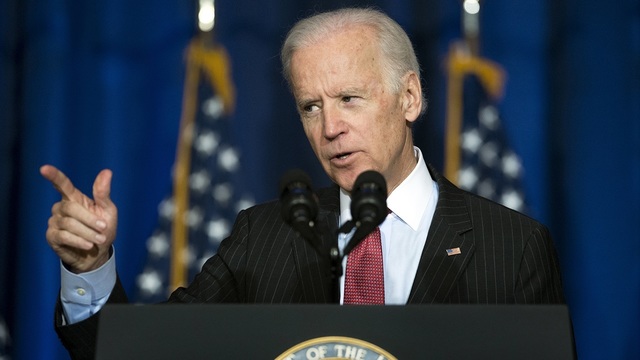This post has already been read 1826 times!
The next president has vowed to immediately rejoin the Paris Agreement and set a 2050 carbon neutrality target
President-elect Joe Biden plans to push for the most progressive climate policy the U.S. has ever had, aligning the world’s second-largest carbon emitter with a growing group of nations aggressively tackling global warming.
Biden has promised to rejoin the landmark Paris climate agreement on his first day in office, reversing the withdrawal orchestrated by President Donald Trump. He’s also called for the U.S. to have net-zero emissions by 2050, which would make it the last Group of Seven nation to set such a target.
This turnabout sets the stage for an accelerated global effort to combat climate change at a time when record-breaking heat, wildfires and hurricanes are battering communities from Louisiana to the Philippines. It’s also a dramatic reversal from Trump, who ended direct caps on methane emissions, relaxed national fuel-efficiency standards, scrapped the government’s long-range temperature forecasts and discouraged administration staff from publicly acknowledging climate change.
“It strikes me as going from hell to heaven,” said Robert Stavins, a Harvard University professor who’s advised both Republican and Democratic presidents on environmental policies. “It will be shocking to look at the White House and not be embarrassed.”

Biden’s victory will have “huge implications” for global climate diplomacy, said Alessandro Motta, an Italian diplomat who is helping to organize the COP26 meeting scheduled to take place in Glasgow next year. “All of a sudden we have a real possibility of success,” he said, adding that after the U.S. rejoins Paris it will be more difficult for countries such as Saudi Arabia that “have been hiding in the shadow of Trump” to continue dragging their feet on their commitments.
Biden’s climate agenda, if enacted, will for the first time help put the world within reach of limiting global warming to 1.5 degrees Celsius above pre-industrial levels, according to Climate Action Tracker. The research group estimated that the U.S. setting a target for net-zero emissions by 2050 could reduce global warming by 0.1C by 2100.
Rejoining Paris will be easy for Biden, taking effect 30 days after he notifies the United Nations he wants to sign on again. But the next U.S. president will need to back that up with policies—and he needs to go big, said Alden Meyer, U.S. director for the International Climate Politics Hub. Simply reinstating the original climate targets from the Obama administration won’t be enough to impress allies like the EU, which is now aiming for a 55% emissions reduction by 2030. But Biden can build off Obama-era rules, such as fuel efficiency standards that would accelerate the adoption of electric vehicles, and create federal versions of existing state-level policies governing clean power.
Biden will also need to kick in some significant funding. Under President Obama, the U.S. pledged to contribute $3 billion to the Green Climate Fund, a UN program to help developing nations transition to clean energy. Yet the U.S. paid only $1 billion of that before Trump took office in 2017 and hasn’t provided any since then, leaving a $2 billion shortfall.
Several nations, including France, the U.K. and Germany, have subsequently moved to double their initial pledges. To keep pace and re-establish the U.S. as a serious player in global climate efforts, Biden would need to offer another $6 billion, according to Meyer, for a total of $8 billion due.
Over the past year it has looked like the coronavirus pandemic would scuttle global climate efforts, particularly as governments and central banks bailed out fossil fuel companies to protect jobs in the face of surging unemployment. “In March there was a gloomy sense that climate would take a back seat,” said Rachel Cleetus, policy director and lead economist at the Union of Concerned Scientists. “But the reality is there’s been a growing recognition that we don’t have the luxury of choosing one crisis at a time.”
Global leaders have since then stepped up their climate ambitions. European Union ministers last month backed a binding 2050 climate neutrality goal. And in the past two months, China, Japan and South Korea have all committed to achieving carbon neutral economies. Now the U.S. has elected a progressive leader who’s made similar vows.
Cleetus said a key driver has been the relentless wave of extreme weather events triggering disasters around the globe: a heat wave in Siberia, floods in Vietnam and China, massive fires in Australia and the U.S. West, and a record-breaking year for Atlantic hurricanes. Even in the middle of the U.S. election drama, Hurricane Eta roared toward central America and the Philippines recovered from super-typhoon Goni, which killed more than a dozen people.
One way for Biden to help reinvigorate the global fight against climate change would be to seek to set up a global net-zero coalition with Europe, said Simone Tagliapietra, a research fellow at the Brussels-based think tank Bruegel. It could promote policy tools that need strong international cooperation, such as the development of carbon emissions removal technologies and a levy on imports of emissions-intensive products already being considered by the EU.
“I think 2020 can still go down in history as the year where more than half of global emitters got really serious about reducing emissions to zero,” said Niklas Hoehne, founding partner of the NewClimate Institute.



